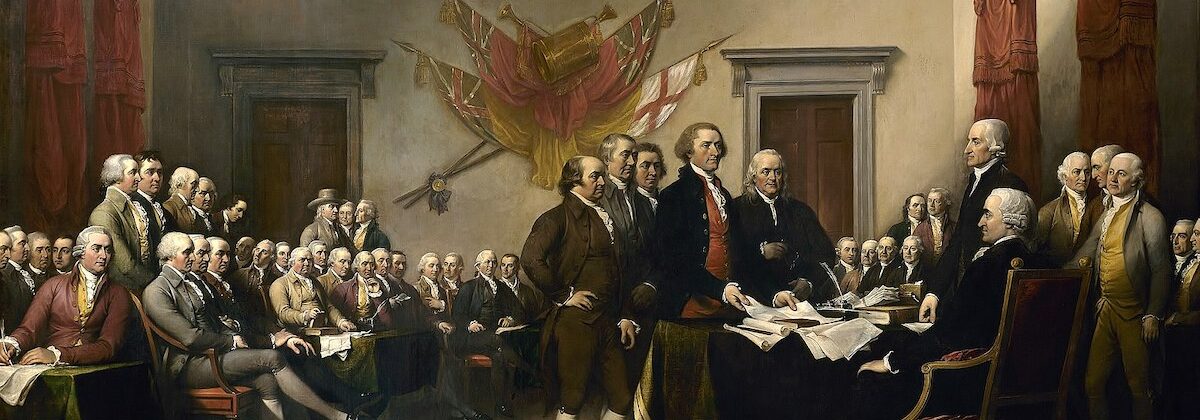Welcome back to this page! Glad to have you here.
What a tumultuous week in our nation! My passion is Founding documents education. It’s a good thing because in my view, if you know the American founding documents, you can’t be tricked into emotional responses. You’re not asleep at the wheel while your liberties slowly evaporate. Instead, you can keep your cool because you know the law and the role you play in self-government. Your only decision is what you will do in response to what is going on around you.
This week, we discuss the popular ideas of the founding era and why the Founders did not incorporate them into our republican (not the party but the system) form of government. In the next article we look at popular culture’s view of work (Is it a dying word?). Work is a citizenship issue and beckons our consideration.
Let’s begin with our first article, entitled “Who Were Those Other Influencers?”
Who Were Those Other Influencers?
In today’s language, you might call them American influencers. Our Founders studied certain philosophers as they formed our government. Last week, we talked about who these influencers were and discussed their contributions to our American form of government. You may recall this sentence:
“Our Founders had other influencers besides Montesquieu, Locke, and Blackstone. They consulted the writings by international thinkers who stressed that international law must conform to the Laws of Nature and Nature’s God. Our Founders also considered the works of non-Christian thinkers and those of the old Roman republic.”
No one asks but wonders this: Who were those non-Christians thinkers, and what influence did they have on our nation’s founding? Why did our Founders reject some influencers and accept others? Let’s take a brief look.
First, there’s Jean-Jacques Rousseau. He said, (When a citizen is told) “‘It is expedient for the state that you should die,’ he ought to die … because his life is no longer a mere bounty of nature, but a gift made conditionally by the State.”
Did you catch that? In Rousseau’s philosophy, the government is god. If the State tells you to die, it is your duty to your country to do so. As we learned last week, our Founders believed that all law must conform to the laws of Nature and Nature’s God. They are saying this: Your life is a gift from God, not granted to you from the State. No one has the right to take your life from you. This is what our Founders believed after their extensive reading of ancient, contemporary, and international thinkers. Our founding documents stress that “among these (natural rights) are life, liberty, and the pursuit of happiness. How can you pursue liberty and happiness if you are dead?
Then there’s Friedrich Hegel, who said, “All the worth which the human being possesses … he possesses only through the State…The State is god walking on earth… We must worship the State.” Our Founders had a biblical, not a secular, view of government. We see this clearly in the Declaration of Independence. One can only suppose that the reason they agreed to phrases like:
“all men (humans) are created equal…,”
“they are endowed by their Creator with certain unalienable rights..,”
“that to secure these rights governments are instituted among men (humans),”
is because they observed other forms of government in history and decided upon the great American experiment. We the People run the government with ultimate accountability to the Creator, not to an authoritarian head of State.
Our Founders agreed with Thomas Hobbes’ view that humans are naturally selfish. Hobbes’s answer to this problem was government by an absolute monarchy to curb human tendencies and appetites. Our Founders believed that humans could be self-governed when they have moral foundations as found in the laws of nature and nature’s God. They believed that human potential is released when individuals are ultimately accountable to their Creator, not human judgment alone. This is why there is no separation of church and State in our founding documents. (Really. It’s not in them. Try to find it!).
In the Founders’ view, government supports freedom of religion so that a moral citizenry could remain free through moral restraint rather than a dictatorship. Not that you must pay taxes to a national church or even go to church. Instead, citizens are free to exercise their faith and develop moral foundations (don’t cheat, steal, kill, lie, covet, etc.) in the way they choose.
As you may realize, many today would agree with the philosophers whose ideas our Founders rejected. Everything old is new again when you see that civilizations from the past grappled with the views of God vs. no God, freedom vs. dictatorship, self-government vs. government control over every area of your life. These same arguments are scattered throughout our media and popular culture today.
Careful study helps us to understand the scholarship of our form of government, not what others may say about our Republic.
This is Common Sense Civics and Citizenship. 🇺🇸

